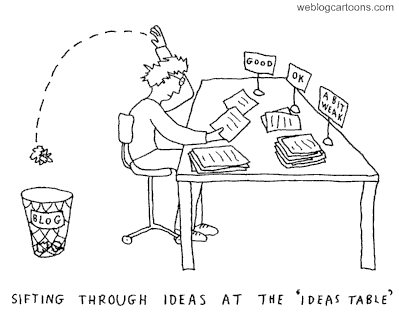Activity 8: Key Change In My Practice
This blog
uses Rolfe et al's (2008) model of reflection in conjunction with Osterman & Kottkamp’s (1993)/Kolb’s (1984) experiential learning models to reflect on MindLab's role in my Professional Learning.
Analysis of Osterman & Kottkamp (1993) and Kolb (1984) can be found in
my previous blog.
What?
“Teacher’s continuing
professional development can improve teacher quality and teaching practice” (de
Vries, Van De Grift & Jansen, 2014, p.338).
Our Code Our Standards (2017) identifies the expectation
for professional learning (Figure 1).
Figure 1
When used in
conjunction with Timperley (2008) – Figure 2, we must critically examine our
own practice with student outcomes at the centre. Student “needs” drive teacher “needs”. Professional learning is not measured by
teacher mastery of skills, rather the impact changing practice has on valued student
outcomes (Timperley, 2008, Guskey, 2014).
Figure 2
Problem Identification - has MindLab
- as professional learning - been about developing personal
capacity in isolation, or has it had an impact on personal practice and student
outcomes?
So What?
Using
Osterman & Kottkamp (1993)/Kolb (1984) models, each phase has been
associated with a change in thinking/practice around school
practices/policies as well as classroom praxis.
Professional learning through MindLab, has made me a more reflective observer noting
inconsistencies between experience and understanding - particularly in school
policies/practice concerning equity, excellence and belonging. The philosophical underpinnings of what we
say we do is not necessarily what we do.
I am more confident on the basis of MindLab experiences and research
informed practice to give voice to the observable tensions. Consequently, I
have been able to reconceptualise current practice. Rather than criticising the
status quo, I am able to offer evidence for a change and, in some cases, a
change process that may lead to better student outcomes. Reflection has become increasingly central in
my current practice.
The final
phase of active experimentation is more challenging with school
policies/practice, but some changes have been/will be implemented as a result
of experiential reflection. For example,
a PLC to continue the professional learning of those with a strong
techno-pedagogic knowledge so they can continue to develop, and, in turn, pass
their knowledge on to wider staff to develop their understanding and
confidence. This in turn means teachers
are more likely to become informed risk takers in the classroom with respect to
e-learning.
In my classroom
practice, work on teacher-student agency/power, collaboration, and knowledge construction has led to a change in approach in Year
13 Physical Education. Students now make personal choices surrounding assessment contexts. The rationale being that greater personal
relevance and autonomy leads to greater engagement with the concepts underlying
their assessment. This translates into
work that has greater depth and breadth than previously (when everyone was
assessed within the same context).
Using Figure
1, I have been able to use the MindLab experience to:
a, Inquire and
reflect on current practice
b. Be research
informed
c. Critically
examine my own (and wider) assumptions and beliefs
d. Apply learning adaptively
e. Engage
collaboratively with learners/colleagues/others (G+ Community)
Now What?
Through
MindLab, I (and my students and colleagues) have had the opportunity to develop
personal practice, knowledge and understanding.
Where to from here? How do I
continue to develop? How will the school
enable that? School climate and
educational leadership are central to the ongoing professional development of
all staff (de Vries, Van De Grift & Jansen, 2014). School leadership needs to address the needs
of staff who have completed MindLab by utilising their expertise and developing
their understanding further. I was in a position to act upon the learning
from many aspects of the MindLab course because I held a position as lead
teacher of e-learning. That position has
been given to another staff member for 2018, so personal momentum has been
halted. At the moment, I am unsure if
the climate will enable my continuing professional development – unless I seek
out the opportunities.
References:
Anderson, M. (2018). Education
Cartoon #6562 ANDERTOONS EDUCATION CARTOONS. Andertoons.com. Retrieved
19 March 2018, from https://www.andertoons.com/education/cartoon/6562/on-the-plus-side-its-something-for-your-plc-to-chew-on
Education Council Matatū Aotearoa. (2017). Our Code Our Standards Tikanga, Ngā Paerewa, Matatika Ngā. (Education Council Matatū Aotearoa, Ed.). Wellington. Retrieved from https://educationcouncil.org.nz/sites/default/files/Our Code Our Standards web booklet FINAL.pdf
Guskey, T. R. (2014). Planning professional learning. Educational Leadership, 71(8), 10–16. https://doi.org/10.1017/CBO9781107415324.004
Kolb, D.A.
(1984). Experiential Learning.
Englewood Cliffs, NJ: Prentice-Hall.
Lineham, C. (2017). Activity
2: A Change in My Practice Towards Future-oriented Learning and Teaching.
Retrieved 21 March 2018, from
http://mindlabpracticeclineham.blogspot.co.nz/2017/11/activity-2-change-in-my-practice.html
Lineham, C. (2018). Osterman & Kottkamp (1993) versus Kolb (1984). Retrieved 21 March 2018, from http://mindlabpracticeclineham.blogspot.co.nz/2018/03/osterman-kottkamp-1993-versus-kolb-1984.html
Timperley, H. (2008). Teacher professional learning and development. Educational Practice Series. Number 18. Brussels: International Academy of Education. Retrieved from https://goo.gl/xNYOOC






Comments
Post a Comment